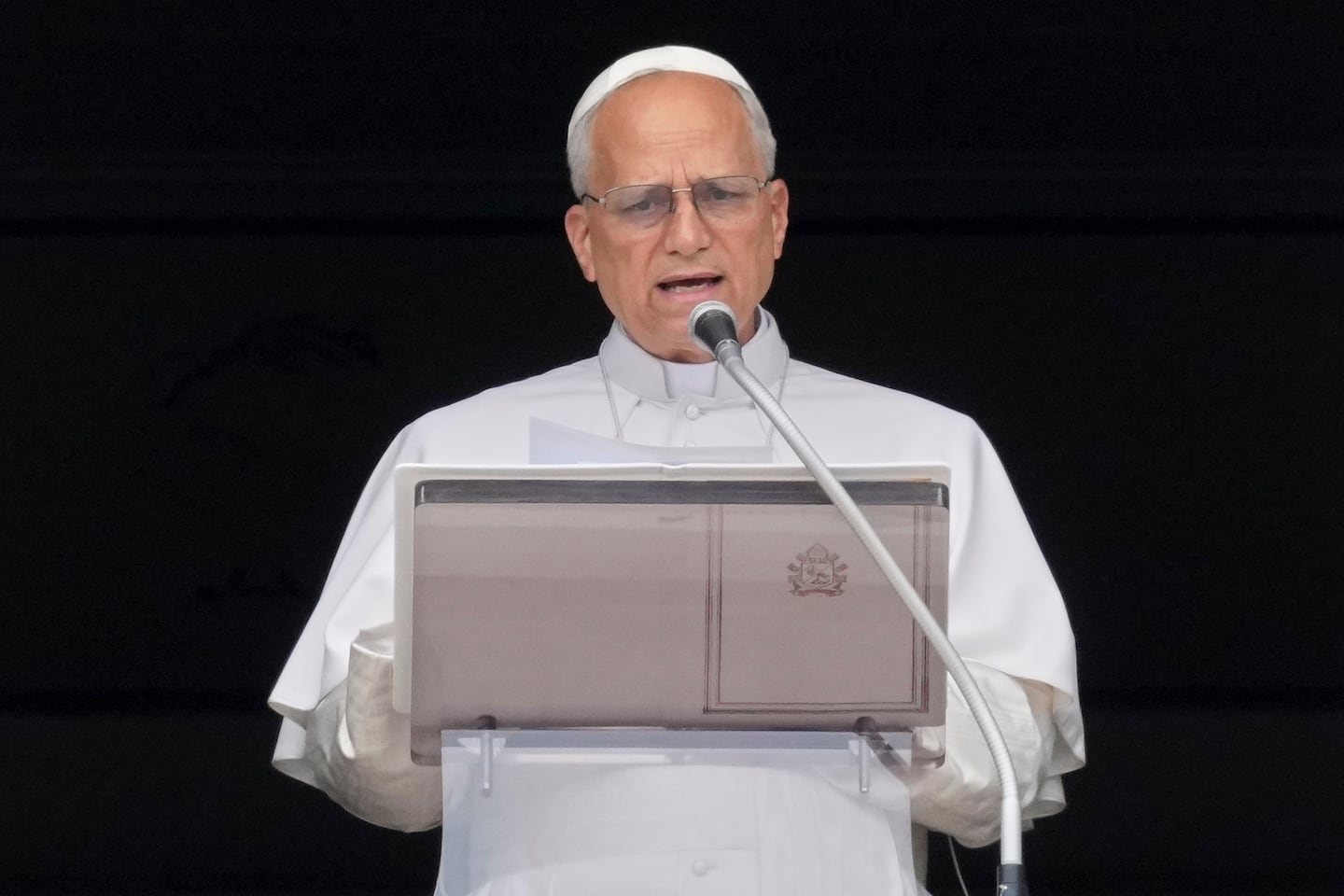In Catholic tradition, a preventive war, to forestall a potential future attack, the timing and circumstances of which are unknown, lacks just cause.
Jacoby omits any mention of the pope’s reference to the people of Gaza, where Israel’s campaign fails two key Catholic standards for a just war: the principle of discrimination, which mandates the protection of civilians; and the principle of proportionality, where the harm inflicted should not outweigh the morally permissible objective that is sought.
Finally, war must be a last resort, after all peaceful means of resolving a dispute are exhausted. As President Trump was still negotiating with the Iran when Israel attacked, a possible diplomatic solution had not yet been foreclosed.
C. J. Doyle
Executive director
Catholic Action League of Massachusetts
Boston
Lest it be misunderstood: Jesus condemned violence
“All who take the sword will perish by the sword” (Matthew 26:52).
I appreciate Jeff Jacoby as a thoughtful, conservative writer, and I judge that he had a reasonable argument going when he declared Pope Leo XIV as “deeply misguided” when the pope said that “war does not solve problems.” However, Jacoby made a big mistake when he tried to clinch his own view that some wars do solve problems when he used a quote from Jesus.
One can use pretty much any individual biblical citation to bolster one’s argument, as I have above in rebuttal, in referring to the Gospel of Matthew, in which Jesus tells Peter to put his sword away after cutting off the ear of a soldier during Jesus’ arrest. This is called proof texting, and the passages are often taken out of context.
Furthermore — and the bigger point — almost all biblical scholars would agree that Jesus condemned violence throughout his life and certainly wouldn’t agree with Jacoby’s assertion that “sometimes only through deadly force” can evil “be overcome.”
As for the pope, my guess is that when he says that war only “amplifies” problems, he is not only alluding to the enormous suffering brought about by war, which Jacoby acknowledges, but also the problematic aftermath of most wars.
For example, Jacoby cites how Operation Desert Storm liberated Kuwait. What he failed to acknowledge is that following that event, Osama bin Laden and Muslim extremists made the United States their main enemy, which began a 35-year period of militant Islamic war on the United States in the Middle East, leading in 2003 to one of the worst foreign policy decisions in our history, the invasion of Iraq. We are still paying for that mistake. Indeed, as the pope declared, war only “amplifies problems.” It should be a last resort — a requirement rarely met.
Art McDonald
Salem
The writer is a retired Unitarian Universalist minister.
‘Then justice will dwell in the wilderness’
I prefer Isaiah’s hope/prophecy regarding peace and justice:
“Then justice will dwell in the wilderness … The effect of righteousness will be peace … My people will abide in a peaceful habitation, in secure dwellings, and in quiet resting places” (32:16-18).
May it be so.
Jean Condon Lechtenberg
East Falmouth
